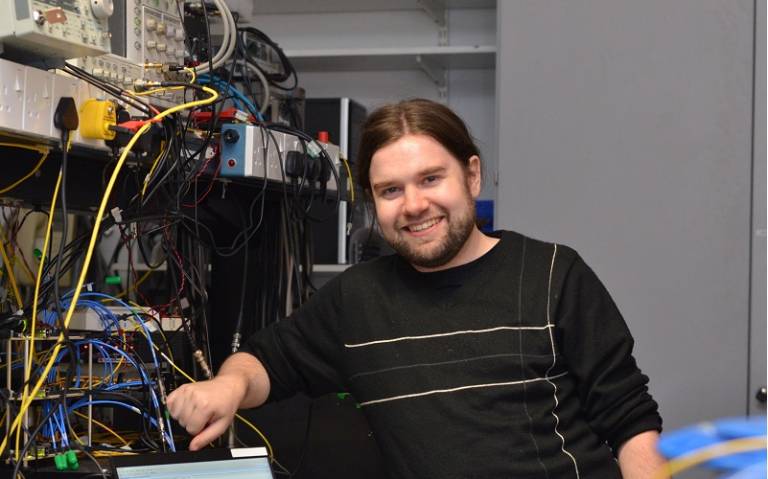The highs and lows of PhD life
1 February 2021
Kari Clark and Tom Gerard are our latest students to successfully defend their theses. Here, they share the best and worst moments from PhD life.

Kari describes a tough second year before going on to develop award winning research, whilst Tom remembers how an experience very early into his PhD left him feeling daunted and bewildered about what lay ahead. Read on to learn more.
What are your PhD highlights and why?
Tom: The best moments of my PhD were all based around collaboration and engagement – attending international conferences, working with visiting academics, touring the laboratories of other groups, interning with Microsoft Research, and so on. These events demonstrated to me that the days of solo PhD work are over, and that the best (and most fun!) contributions come from collaborating with others and working as a team.
A wonderful example of this was the last days of Dr Yuta Wakayama’s stay with us at the Optical Networks Group (our UCL site), who was visiting from KDDI Japan. After a week of intense lab work combining Yuta’s programming experience with our laboratory skills, we had a group picnic with football in the park and a dip in the Hampstead Heath ponds. This tight fit of international collaboration, cutting-edge research, socialising in the group and engaging in cultural activities was amazing fun and totally typical of life within the Optical Networks Group.
Kari: Winning the EPSRC Connected Nation Pioneers award, having my phase caching post-deadline conference paper and its follow-up journal paper accepted by Nature Electronics were all rather significant highlights.
However, the most significant highlight for me, which came before these, was seeing my clock phase caching technique working for the first time, late in the evening in our optical communications laboratory (photo, right). I had been writing and testing field programmable gate array (FPGA) hardware code to implement the technique for about two months, and it was very satisfying to finally see my idea work. It was a key turning point in my PhD project: from being unsuccessful, to successful.
Read the full Q+A over on the ICCS website, link below.
The highs and lows of PhD life with Kari Clark and Tom Gerard
 Close
Close

